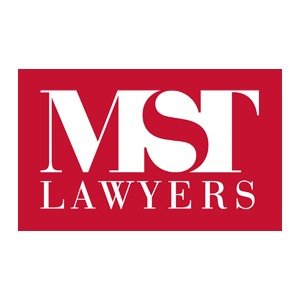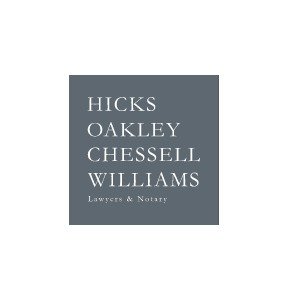Best Trusts Lawyers in Mount Waverley
Share your needs with us, get contacted by law firms.
Free. Takes 2 min.
List of the best lawyers in Mount Waverley, Australia
About Trusts Law in Mount Waverley, Australia
Trust laws in Mount Waverley, Australia fall under the broader Victorian and national legal frameworks. A trust is a legal entity created when a person (the settlor) gives legal ownership of an asset to another person or company (the trustee) to manage for the benefits of others (the beneficiaries). The laws governing trusts are intricate and include elements of contract law, equity law, property law, and tort law.
Why You May Need a Lawyer
Given the complexity of trusts, it is often essential to obtain legal advice for the creation, management, and dissolution of trusts. Common situations requiring legal assistance include setting up a family or discretionary trust, handling trust disputes, understanding trustee duties, dealing with taxation issues involving trusts, and sorting out estate planning involving trusts.
Local Laws Overview
Trust laws in Mount Waverley refer to the Trusts Act 1978 (Victoria), along with other relevant Victorian and national legislation. The law stipulates the creation, operation and termination of trusts, trustees' obligations and powers, and the rights of beneficiaries among other things. It's notable that trusts must also comply with relevant tax laws, such as the Income Tax Assessment Act 1936 (Cth) pertaining to trust taxation.
Frequently Asked Questions
What different types of trusts are there?
In Australia, the most common types of trusts are discretionary trusts, unit trusts, fixed trusts, and hybrid trusts.
What is the role of a trustee?
A trustee is legally responsible for the assets in a trust. They must manage the trust's assets according to the trust deed and laws, and in the best interests of the beneficiaries.
What is a trust deed?
A trust deed is a legal document that establishes the trust, sets out the terms of the trust and outlines the powers, duties and limitations of the trustees.
What are the tax implications of setting up a trust?
Trusts can provide certain tax benefits, but they also come with obligations. Trusts must apply for a Tax File Number and are required to lodge an annual tax return. Distributions of trust income must also be tracked and reported.
Can a trust be disbanded?
A trust may be dissolved in certain circumstances, such as when the purpose of the trust is fulfilled or becomes unlawful, or if the trust property is depleted. Dissolving a trust usually requires legal advice and the help of a lawyer.
Additional Resources
For those needing more information, the Australian Government's Australian Securities and Investments Commission (ASIC) provides extensive online resources about trusts. Additionally, the Law Institute of Victoria provides resources and can assist in finding qualified trust lawyers in Mount Waverley.
Next Steps
If you need legal help with trusts, the first step is to consult with a lawyer who specializes in trust law. They can advise about your specific circumstances, guide the establishment or dissolution of a trust, or assist with legal issues arising from managing a trust.
Lawzana helps you find the best lawyers and law firms in Mount Waverley through a curated and pre-screened list of qualified legal professionals. Our platform offers rankings and detailed profiles of attorneys and law firms, allowing you to compare based on practice areas, including Trusts, experience, and client feedback.
Each profile includes a description of the firm's areas of practice, client reviews, team members and partners, year of establishment, spoken languages, office locations, contact information, social media presence, and any published articles or resources. Most firms on our platform speak English and are experienced in both local and international legal matters.
Get a quote from top-rated law firms in Mount Waverley, Australia — quickly, securely, and without unnecessary hassle.
Disclaimer:
The information provided on this page is for general informational purposes only and does not constitute legal advice. While we strive to ensure the accuracy and relevance of the content, legal information may change over time, and interpretations of the law can vary. You should always consult with a qualified legal professional for advice specific to your situation.
We disclaim all liability for actions taken or not taken based on the content of this page. If you believe any information is incorrect or outdated, please contact us, and we will review and update it where appropriate.









